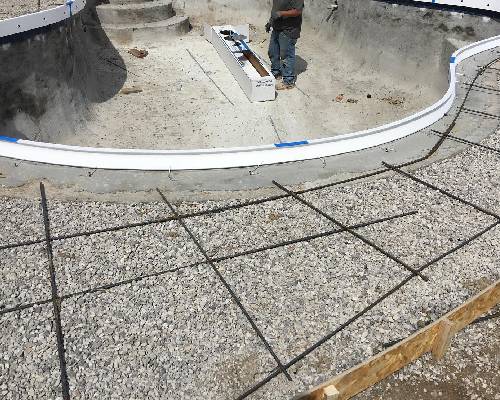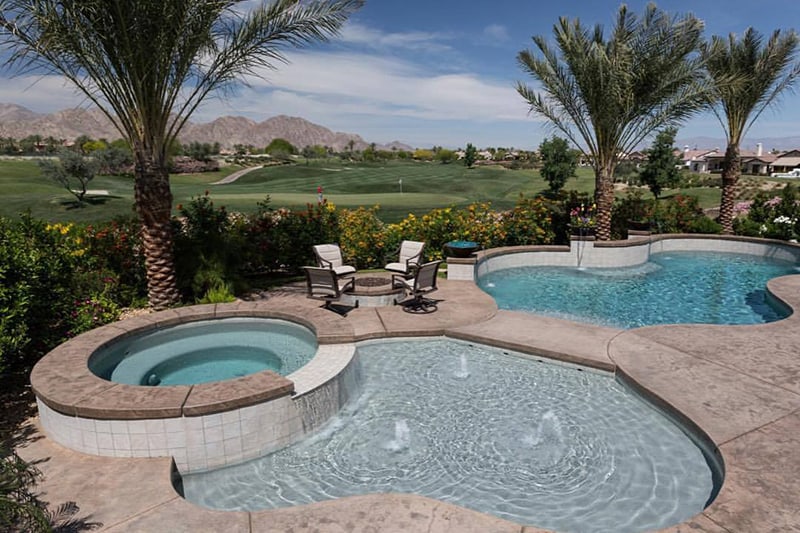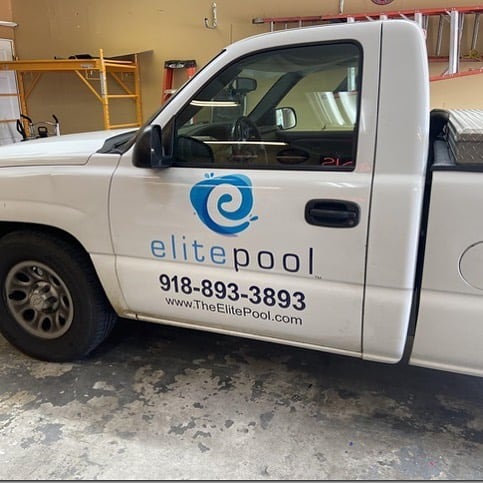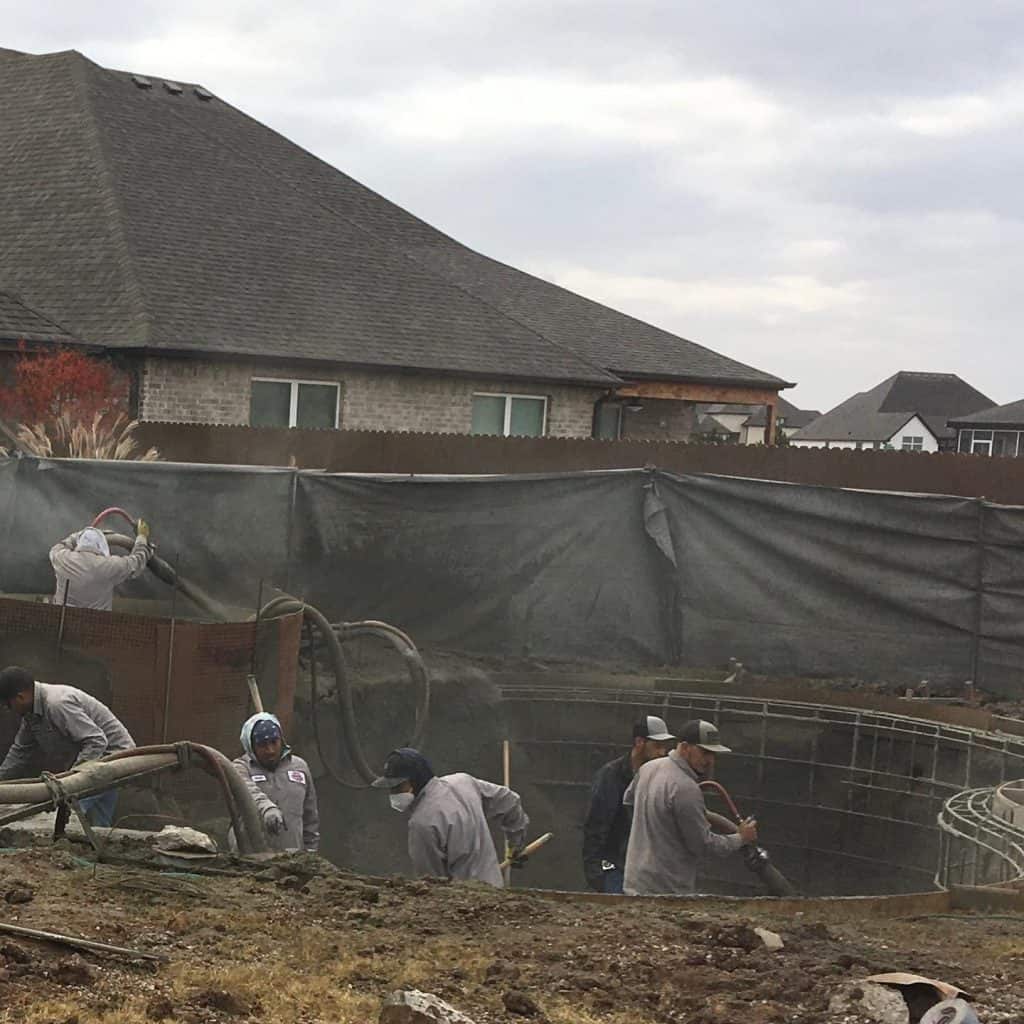Inground Pools: Swimming Pool Construction Types
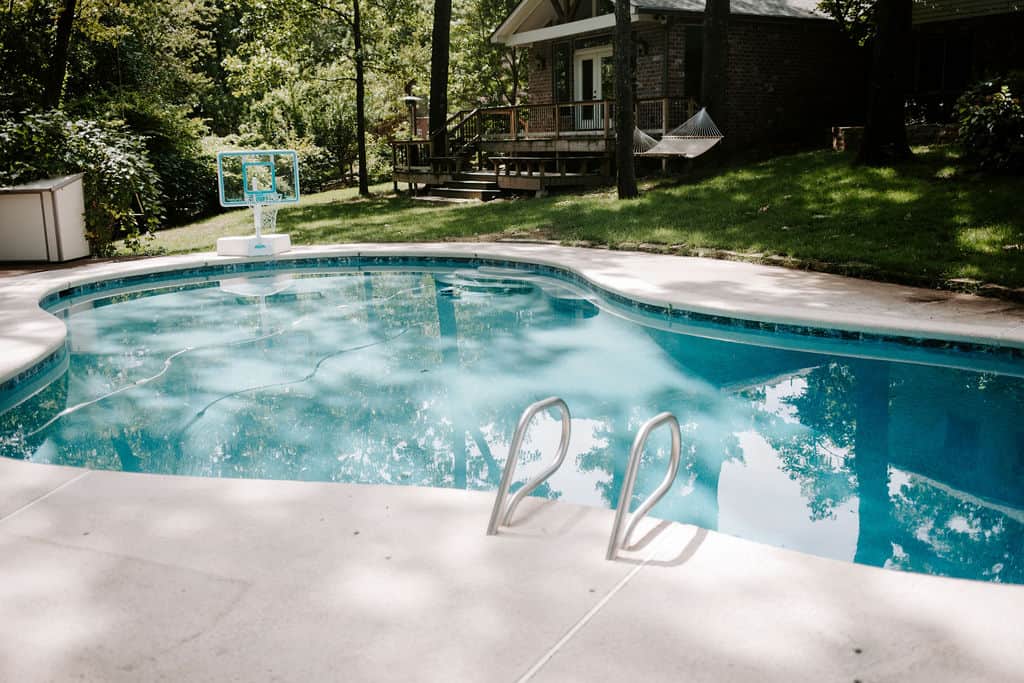
When the decision has been made to construct a swimming pool, you may not know exactly where to start or what to focus on. There has never been more choice available to the homeowner shopping for a backyard swimming pool. Some provide flexibility with regard to size and shape. Others speak to durability and permanence. To help you decide what kind of pool best suits your needs, let's run down some of the Inground Pool Construction Types.
Types of In-ground Pool Materials
Preparing to invest in a swimming pool needs planning and making decisions on what type of material you'd like your pools made out of. We at Elite Pool Service want to help you make the best decisions possible for you and your family. Some of our childhood memories are created in the backyard, in the pools, and with our family. And being able to provide a memorable experience and create wonderful memories in a glittering jewel of a gathering place that you can call your own for you and your family is the very rewarding thing about what we do.
Concrete/Gunite Pools
The conventional building material of choice for in-ground pool construction is concrete. It’s a popular type of in-ground pool because it’s durable and can be customized to any shape or size. Concrete pools are usually more expensive than other pools, but they offer many advantages that make them worth the investment.
A concrete swimming pool is designed to take up a full water load along with the capacity to withstand large pressure loads. The significant loads on the concrete pool structure are the weight of the earth outside the pools and the weight of water held within the pools. The thrust created varies when the water in the pool is emptied for cleaning purposes. It may or may not cause an effect on the concrete based on the design efficiency.
This type of pool begins with excavation and a framework of steel. Concrete is poured and then sealed with a coat of plaster (which can be re-applied over the years as needed).
Types of Concrete Swimming Pool
Gunite Pools
A gunite pool is an inground concrete inground pools. Gunite refers to a concrete pumping process where dry mixed concrete is pumped through lines and mixed with water at a spray nozzle. This mix is then sprayed into place forming the base pools structure.
Elite Pool Service - Experienced & Qualified Inground Pool - Swimming Pools Experts
Either of these pools will look beautiful, especially when you have the best pool builder doing the installation. Elite Pool Services will work with you to ensure you have the perfect pool for your backyard and your budget. We provide custom design and install all types of in-ground pools from recreation and fitness-focused swimming areas to luxury backyard oases. Whether you’re looking to create beautiful backyard memories with your grandchildren or build a luxury pool for extravagant entertaining, our team can help you bring your swimming pool vision to life.
After your pool is constructed and the finishing touches are in place, proper pool maintenance will ensure your custom swimming pool remains as stunning, functional, and enjoyable as the day it was installed.
Our Certified Pool Operators provide top-notch pool maintenance, 30+ years of experience, and reliable service. Call 918-893-3893 today!
Table of Contents
- Pool Renovation
- Pool Resurfacing
- Coping, Tiling, & Rock
- Lighting Upgrades
- Pool Automation
- Chlorine Alternatives
- Pool Pumps & Installation
- Hayward Platinum Warranty Center

